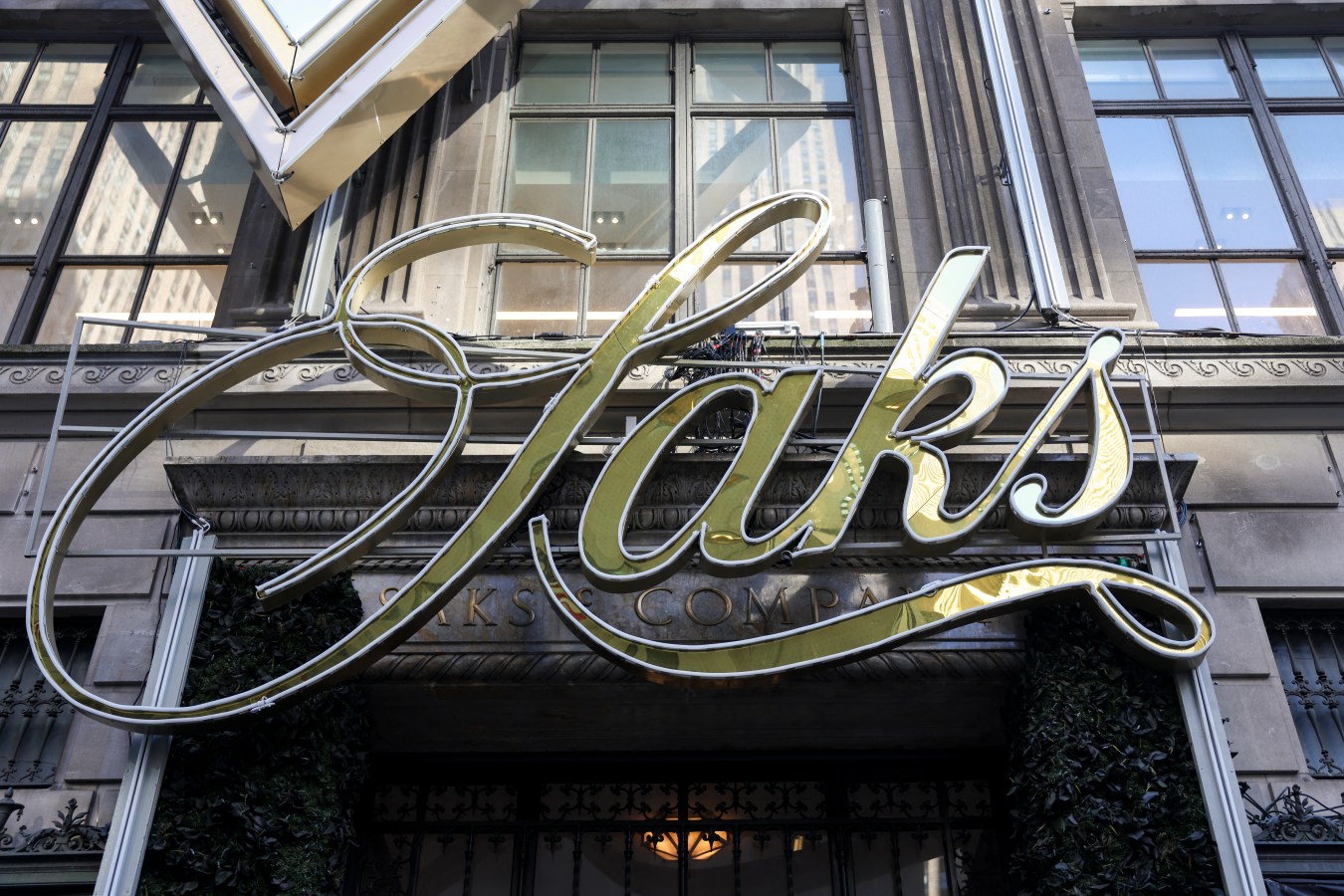Emma Fisher, Portfolio Manager and Head of Research at Airlie Funds Management, talks to Forbes Australia about the changing credit market, the debt cycle and the lessons we have learned from previous economic downturns. She says, first and foremost, we have been here before. Now it’s time for companies to hold on tight and ride out the cycle.

In this rapidly changing world, what are the new fundamentals for you as an investor?
It’s not that we focus on new fundamentals; the old fundamentals are beginning to matter again. It didn’t seem so important for a few years there, but ultimately, the same things come to the fore: cash matters, and profit matters. Balance sheets matter. Interest rates matter. Money isn’t and shouldn’t be free. If you set the price of money too low, people want more of it and tend to allocate it to poor-returning investments. Now we are in the painful unwinding stage of some of those investments.
Given the world is in a pretty crazy state – at least a state we certainly haven’t been in before – in terms of investment, where wouldn’t you go now? What are you actively avoiding?
The narrative is always different, but in terms of the debt cycle, we have been here before. We just haven’t been here for a long time, and the market has a short memory.
I believe we are in the late tightening phase of the debt cycle, and central banks have raised rates incredibly aggressively to fight inflation. This is part of the cycle where things start to go bump in the night, and we’ve seen that lately with events like the crypto crash and failure of Silicon Valley Bank.
The critical lesson at this point in the cycle is to avoid companies that aggressively geared themselves up in a low-interest rate environment. As rates rise, they’ll need to pay higher interest to service their debt, which means, at the very least, equity investors will be left with a shrinking piece of the profit pie. Large debt balances make such companies inherently riskier, and these businesses may have less wiggle room to navigate any economic downturn.
What do you see as opportunities in the coming 12 months?
The flip side of my prior suggestion to avoid companies with poor balance sheets is
that we see opportunities in businesses with strong financial positions. Businesses sitting
on piles of cash should see opportunity in the gathering economic storm clouds, especially if they have highly geared competitors.
A recession is undoubtedly painful and worry-inducing, but it is just one part of the business cycle. Ironically, it’s the part that typically throws off the most opportunity for businesses and individual investors. If a company is well-run and has the financial strength to navigate any crisis, it may get the chance to pick up competitors or take market share in a downturn if competitors struggle with debt loads and falling demand.
What are your thoughts on the current situation in Australia amidst rate rises and inflation? How dangerous is it to growth? How tough a nut is it going to be to crack, and what opportunities does it present?
The dream scenario is that the central bank manages to thread the needle on slowing the rate of inflation across the economy via a small but manageable uptick in unemployment and a dampening of demand as household budgets are diverted to servicing higher mortgage rates. In this scenario, we experience a slowdown but avoid a recession. I’ve got no idea about the probability of this dream scenario occurring. However, I note the ASX200 has staged a pretty extraordinary recovery from June 2022 lows, rallying 17% to January this year! It looks like the market was beginning to price this dream scenario in as its base case. It wouldn’t be my base case- so on that basis, the market probably looks a tad expensive for the economic circumstances it faces. That said, I’m not a doomsday prepper either: Australia is a small, open economy with a floating exchange rate that sells a lot of stuff that the rest of the world desperately wants, namely commodities. I think Australia will manage a slowdown better than a lot of the rest of the world.
What are your thoughts on the current global economic climate? How is the world different post-pandemic, and have we seen any parallels in the past that we may learn from?
The pandemic went on for just long enough for us to have trouble separating what was temporary and what was structural. We convinced ourselves the shift to online shopping was structural; however, the last year has proven it was temporary, and listed online retailers have suffered as consumers turned back to traditional avenues to buy goods. It remains to be seen whether the working-from-home trend is here to stay permanently (with negative implications for office assets) or whether we’ll slowly move back to our old work patterns. There is a good chance in a decade we’ll look back and realise the pandemic didn’t permanently change how we live our lives. I certainly bought a lot of activewear and track pants I now never want to see again!
Can we talk about geopolitical risk? What may be the effect on Australian and New Zealand markets moving forward, and what do we need to look out for? Can you outline a worst and best case scenario?
I started working in markets just after the GFC, and the “risk of the day” was the European sovereign debt crisis. The PIGS (Portugal, Italy, Greece, Spain) were going to send the world back into a “double dip” recession. Looking back now, it seems quaint that we used to worry so much about European government debt, especially given the extraordinary level of government borrowing globally since then.
My whole career, I’ve noticed a handful of topical, salient macro or geopolitical risks that people have discussed- these change annually. But what is likely to truly move markets from here isn’t the risks we’re discussing and debating today, but some new risks we haven’t even considered. For example, few people had heard of Silicon Valley Bank before we heard it was going under, rattling markets. Markets hate uncertainty, but the reality is the future is always uncertain, and to invest, you need to figure out a playbook to deal with that uncertainty. For us, the combination of good balance sheets, quality business models run by good people, and a reasonable starting valuation gives us the confidence to invest in an inherently risky world.
Back to a more granular view – what are the most promising sectors to start mining and why?
We use a bottom-up approach, and through that lens, I think there are promising businesses in every sector. Assuming the business has a great balance sheet, I think the interesting parts of the market are the ones where everyone is very concerned about the macro and especially about a recession. The most recent recession in everyone’s minds is the GFC, a US consumer-led recession. The housing market was ground zero for that downturn; hence housing and consumer-related businesses have been sold off in anticipation of a similar impact. I don’t see a similar homeowner-led crisis today. Bank regulation is much more stringent, and lending standards are much higher, so I think those sectors are interesting.
When you look at individual companies in this 21st century, a third-decade paradigm which is emerging broadly, what should investors be looking at or looking for if they’re in it for a longer-term investment?
If you want to own a business for the long haul, you want a high-returning business that throws off a lot of cash that will come back to you as a shareholder. Competition theory suggests high returning businesses will encourage competitors to come in to try to eat their lunch, so you want to find a business that has something special about it that can protect it from the competition.
“I don’t know if I’ll be sitting in that house wearing VR goggles and decking my metaverse avatar out in haute couture. I really hope I’m not.”
Emma Fisher, Airlie Funds Management
What is your opinion of tech stocks moving forward? Is there a lot of snake oil being sold? We’re reading a lot about web 3, AI and the metaverse. Do you see value or potential in that sector, or are they, in the main, selling dreams?
I don’t think they’re necessarily selling dreams, but they’re definitely at the pointy end of disruption, and the pace of change at that pointy end is so fast that I don’t back myself to be able to see it coming or accurately predict what it means for those stocks. So I prefer to focus on businesses that change slowly and are likely to be doing things in the same way five or 10 years from now. I am pretty sure in a decade, I’ll have private health insurance, and I’ll live in a house that contains plasterboard or brick. Still, I don’t know if I’ll be sitting in that house wearing VR goggles and decking my metaverse avatar out in Balenciaga. I really hope I’m not.
Any thoughts on crypto and blockchain and the potential opportunities there?
As an innocent bystander in the crypto/non-fungible token/SPAC saga, what amazed me was how similar every bubble in history is. From what I’ve read, it was very similar to the South Sea bubble that gripped England in the 1700s. People making daily fortunes through the ever-rising stock price of the South Sea Company led to a rush of similar IPOs, and even an early precursor to SPACs (special purpose acquisition companies), where men would raise cash today with the promise to return tomorrow to reveal the investment the cash went towards…only never to show up, having fleeced investors of their money. Take comfort if you lost money in the crypto-cash: even Isaac Newton got sucked into the South Sea bubble.
More broadly, are there any trends you’re watching?
I’m watching the pace of the energy transition with interest and nerves. We need to replace pretty much the entire energy grid – nearly double it to power all the things that will now need to be electrified. For example, research suggests one electric vehicle adds to half a household of annual electricity demand. The transition needs to happen, but doing this in a timely way that is also reliable and affordable seems difficult. We’re going to face some tough trade-offs over the coming years. At the very least, this may embed a higher energy cost and hence higher inflation over the next decade than the decade past.
Note: This is an edited version of the conversation.
Forbes Australia Issue Four is out now. Tap here to secure your copy and membership.
Look back on the week that was with hand-picked articles from Australia and around the world. Sign up to the Forbes Australia newsletter here or become a member here.


